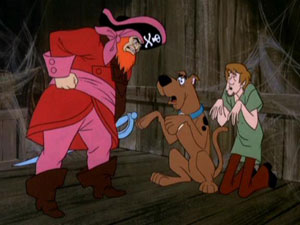From the Latin meaning “redbeard,” Barbarossa was originally used in the classical era to describe central Europeans who sported this specific brand of facial hair. A seemingly factual condition, Barbarosssa has strangely developed over time to connote brutality and ruggedness. What about the history of this seemingly arbitrary physical signifier finds itself in names, fictional universes, military operations, and video games to this day?
The earliest reference I could find dates back to the 12th century in the establishment of Holy Roman Empire, with Emperor Frederick I also known as Frederick Barbarossa. As arguably the first person of large historical influence described with the term, he set a tone for the perception of this attribute that would later form into associations with the american west and pirates. Deemed a “straight-up, no-bullshit medieval ass-annihilator” by the misogynistic mostly military history blog, badassoftheweek.com, Frederick I’s background lends to a construction of Barbarossa as a violently masculine trait associated later with savage totalitarianism (Thompson).
The term’s violent masculinity was much later exploited in 1941, through Unternehmen Barbarossa or Operation Barbarossa, a military initiative led by the Nazis in which they were to infiltrate the red beard of Soviet communism. Ironically the red beard of communism ended with the demise of the third reich and eventually led to tensions between the US and Soviet Russia. This operation has since been made into two video games that did not sell very well.
 |
| http://www.sueddeutsche.de/kultur/bildergalerie-der-wohlinformierte-schauplaetze-des-massenmords-1.294213-6 |
Barbarossa was later used in the midst of the Cold War and American cultural patriotism of the Reagan era, in the 1982 western with the same title. Barbarossa the film though, depicts the savageness of a red bearded Willie Nelson as he runs from the law in the american West. This is a new construction of outlaw savageness or outlaw masculinity.
The outlaw masculinity finds its roots perhaps through the 16th century Ottoman pirate turned privateer, Hayreddin Barbarossa, whose criminal expertise ended up giving him the qualifications to later lead the west Turkish navy. Badassoftheweek.com also wrote a problematically misogynistic article on this historical Barbarossa in which they referred to him as an “epic skull-crushing hardass,” (Thompson).
 |
| http://www.corfuhistory.eu/?p=147 |
Barbarossa pirate characters have since popped up in fictional worlds. These characters include, but are not limited to Hector Barbossa of the Pirates of the Caribbean film franchise, Barbarossa from the 1953cRaiders of the Seven Seas film, Redbeard from the Belgian comic by the same name, and Ghost of Redbeard, the phantom marauder from the original Scooby Doo series. Ironically all of the aforementioned pirate characters have been whitewashed as western Europeans despite the historically muslim imperialistic background of Hayreddin Barbarossa.
 |
| http://animatedviews.com/2010/scooby-doo-where-are-you-season-one-volume-four/ |
What about this term provokes such an established background in violence in the media? I don’t think anyone today would have the wherewithal to say that only people with red beards have a capacity to commit violence. I don’t quite think that anyone would say that there even is a stigma or stereotype that people with red beards are violent, either. I do think, though, that violence makes history, and that history and language feed off each other and that if someone by the name of Barbarossa was famous before Frederick Barbarossa for staging a peaceful protest or inventing a revolutionary medication, perhaps there would be fewer savage fictional characters with that same name.
___________________________________________________________________________
Works Cited
Thompson, Ben. "Badass of the Week: Hayreddin Barbarossa Pasha." Badass of the Week: Hayreddin Barbarossa Pasha. Web. 16 Nov. 2015.
Thompson, Ben. "Badass of the Week: Frederick Barbarossa." Badass of the Week: Frederick Barbarossa. Web. 16 Nov. 2015.
No comments:
Post a Comment